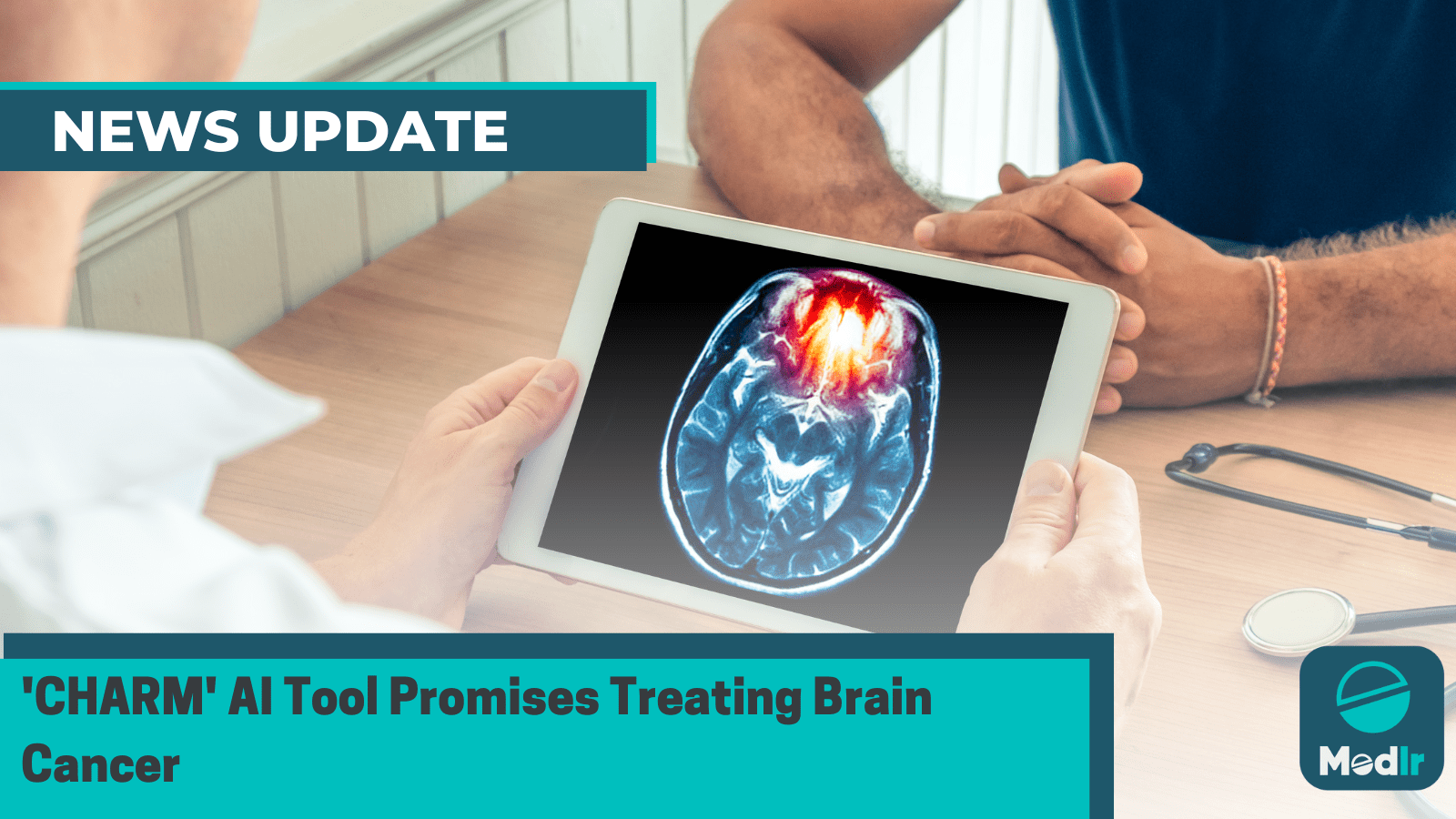'CHARM' AI Tool Promises Treating Brain Cancer
Written by Shaveta Arora
Artificial intelligence tool CHARM shows promise in aiding brain tumor surgeries by rapidly identifying genetic profiles, improving patient outcomes and reducing the need for multiple surgeries.

An artificial-intelligence tool shows promise in assisting doctors in fighting aggressive brain tumors by identifying characteristics that guide surgery.
The tool, known as the Cryosection Histopathology Assessment and Review Machine (CHARM), studies images to rapidly identify the genetic profile of glioma tumors, a process that currently takes days or weeks, according to Kun-Hsing Yu, the senior author of a report released on Friday in the journal Med. Yu stated that surgeons utilize detailed diagnoses to guide their operations, and the ability to obtain them quickly could enhance patients' outcomes and prevent the need for multiple surgeries.
Untreated, glioblastoma, an aggressive form of glioma, can cause death in less than six months. According to the American Association of Neurological Surgeons, only 17% of individuals diagnosed with glioblastoma survive beyond their second year.
When determining the extent of tissue removal from a patient's brain and the decision to implant cancer-fighting drug-coated wafers, surgeons rely on information about the genetic profile of the glioma tumor. However, obtaining this information currently involves time-consuming testing.
Yu and his team of researchers actively trained a machine-learning algorithm to perform the task by presenting it with images of samples collected during brain surgery and subsequently verifying its accuracy against the patients' diagnoses. CHARM successfully acquired the ability to match or surpass other AI systems in identifying the genetic profile of tumors.
Although the tool's precision falls short of current genetic tests, the computer system can swiftly predict a tumor's profile. According to Yu, this rapid analysis could enable doctors to proceed with the appropriate treatment without the additional time required for scheduling and conducting another surgery.
Yu, an assistant professor of biomedical informatics at Harvard Medical School, whose lab spearheaded the research, stated that by utilizing the results from CHARM in conjunction with other information, clinicians could potentially make more informed decisions on the spot.
In addition, CHARM has the capability to differentiate malignant tumor cells from benign cells and determine the grade of a tumor, which indicates its level of aggressiveness. These are assessments that human pathologists typically make during surgery. However, as Yu mentioned, the tool could eliminate the need for a 10-to-15-minute waiting period or the requirement of having a pathologist on standby during an operation.
In a news release, the researchers emphasized the need for testing CHARM in real-world settings, despite the promising results observed in the study.
Yu's team's research contributes to a wide range of endeavors aimed at leveraging AI for improved cancer diagnosis and treatment. An editorial featured in the June issue of Lancet Oncology showcased the capability of certain systems to accurately identify individuals at a high risk of pancreatic, lung, and breast cancer.
Resource - https://m.economictimes.com/tech/technology/ai-tool-shows-promise-for-treating-brain-cancer-shows-study/articleshow/101594065.cms